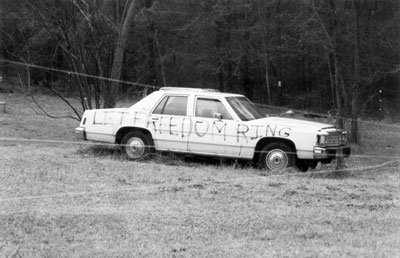All Nonfiction
- Bullying
- Books
- Academic
- Author Interviews
- Celebrity interviews
- College Articles
- College Essays
- Educator of the Year
- Heroes
- Interviews
- Memoir
- Personal Experience
- Sports
- Travel & Culture
All Opinions
- Bullying
- Current Events / Politics
- Discrimination
- Drugs / Alcohol / Smoking
- Entertainment / Celebrities
- Environment
- Love / Relationships
- Movies / Music / TV
- Pop Culture / Trends
- School / College
- Social Issues / Civics
- Spirituality / Religion
- Sports / Hobbies
All Hot Topics
- Bullying
- Community Service
- Environment
- Health
- Letters to the Editor
- Pride & Prejudice
- What Matters
- Back
Summer Guide
- Program Links
- Program Reviews
- Back
College Guide
- College Links
- College Reviews
- College Essays
- College Articles
- Back
What’s Behind Police Brutality? MAG
You have certainly heard about the protests occurring in places like Ferguson, Missouri, and Baltimore, Maryland. Racial inequality is a rising issue in our country. But the root of the problem I believe? Police brutality. Today’s media has been publicizing more and more cases of police abusing citizens, violating their constitutional rights. In order to solve this critical problem, all members of the police force should be required to take yearly psychological examinations to determine whether they are mentally fit to carry weapons and to have the freedom to use them.
Officers’ mentalities play a large role in how they react to different situations. Seeing themselves as victims of circumstance allows officers to disengage themselves from moral responsibility for their actions. Darren Wilson, the cop who fatally shot Michael Brown, may have unconsciously used victim-of-circumstance thinking in his official testimony. According to the court transcript, Wilson said he wanted to keep Brown “contained” until support arrived. He said that he’d believed that if he could buy 30 seconds before other officers arrived, they could “make the arrest, nothing happens, and we are all good.” Wilson thought that he had done as much as he was able to in that incident.
In his article “Understanding the Psychology of Police Misconduct” in Police Chief Magazine, Brian D. Fitch, PhD, writes that “regardless of the context, these officers excuse their conduct by alleging that they had no alternative but to act unethically.” Psychological examinations can determine whether officers would cast themselves as victims or as actors, and therefore prevent misconduct like what happened in Brown’s death.
On November 22, 2014, a 12-year-old black boy named Tamir Rice was shot dead in a city park by Officer Timothy Loehmann. It was reported that Rice was reaching into his waistband, and the officer thought that the child was going to shoot civilians. Later it was discovered that Rice had been armed with only an airsoft toy gun. A boy – almost the same age as many of the readers of this magazine – was shot to death by an officer for possessing a toy gun.
But there is more to the situation. Before joining the police force in Cleveland, Timothy Loehmann worked for another Ohio police force. There, he was deemed an emotionally unstable recruit and labeled unfit for duty. The police report stated that Loehmann’s behavior “leads one to believe that he would not be able to substantially cope, or make good decisions, during or resulting from any other stressful situation.” If Loehmann was emotionally unstable and unfit for duty, why was he allowed to get a job in a different police department? If this report of Loehmann’s mental state had been used to disqualify him from joining the police in Cleveland, a child’s life could have been spared.
Some argue that the incidents that have been erupting in the media are isolated, unfortunate examples of police brutality, and that in reality, police relations with racial minorities are dramatized by the media. However, police brutality is not rare. The media is barely covering the surface of police abuse. Police departments are not required to report cases of abuse at the federal level. Because of this, police brutality could be a much more common problem than we think.
No matter how remote these cases may seem, as a society and a democracy, we must value each life as important. In order to thrive, we must act before brutality happens. Requiring officers to have a mental assessment could prevent these tragic incidents. Should we stand back and watch, or do something to fix this problem? When we look back at the cases of police brutality that the media recounts, we know they are not the first, but we need to do everything we can to make sure they are the last.

Similar Articles
JOIN THE DISCUSSION
This article has 0 comments.

Police minority relations are certainly something I am passionate about. This is just my idea of one way I think we can fix the evergrowing problem of violence on behalf of law enforcement officials. I hope that you will continue to think about the harmful acts of police brutality that plague cities all across the country, and different ways we can react to curb these violent situations.